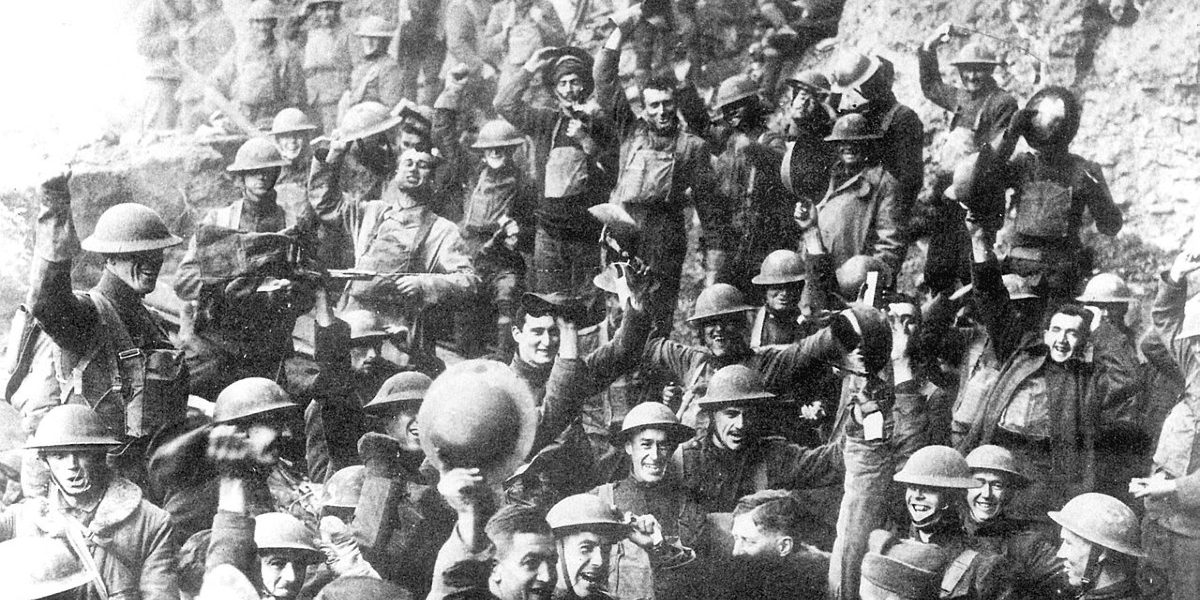Today is Veterans Day, which we originally commemorated as Armistice Day until 1954, when it was re-christened Veterans Day to encompass all who have served in the Armed Forces.
We commemorate it on this date because at the 11th hour on the 11th day of the 11th month in 1918, the guns fell silent on the Western Front as the victorious Allied Powers and defeated German Empire agreed to an armistice. In British Commonwealth nations, it is celebrated as Remembrance Day.
Here’s to honoring all those, living and dead, who have worn our country’s uniform in defense of our independence, liberty and way of life.
And here’s one reminder of the type of American, the type of individual patriot, to whom we owe our liberties (thanks to James freeman of the Wall Street Journal for writing about this):
Hiroshi Miyamura passed away around about a year ago at 97. He was as an auto mechanic in Gallup, N.M., and owned a service station. Miyamura served in the U.S. Army during the Korean War, where he won the Medal of Honor for extraordinary bravery and daring on April 24, 1951. The Medal of Honor citation reads:
Cpl. Miyamura, a member of Company H, distinguished himself by conspicuous gallantry and intrepidity above and beyond the call of duty in action against the enemy. On the night of 24 April, Company H was occupying a defensive position when the enemy fanatically attacked, threatening to overrun the position. Cpl. Miyamura, a machine-gun squad leader, aware of the imminent danger to his men, unhesitatingly jumped from his shelter wielding his bayonet in close hand-to-hand combat, killing approximately 10 of the enemy. Returning to his position, he administered first aid to the wounded and directed their evacuation. As another savage assault hit the line, he manned his machine gun and delivered withering fire until his ammunition was expended. He ordered the squad to withdraw while he stayed behind to render the gun inoperative. He then bayoneted his way through infiltrated enemy soldiers to a second gun emplacement and assisted in its operation. When the intensity of the attack necessitated the withdrawal of the company Cpl. Miyamura ordered his men to fall back while he remained to cover their movement. He killed more than 50 of the enemy before his ammunition was depleted and he was severely wounded. He maintained his magnificent stand despite his painful wounds, continuing to repel the attack until his position was overrun. When last seen he was fighting ferociously against an overwhelming number of enemy soldiers. Cpl. Miyamura’s indomitable heroism and consummate devotion to duty reflect the utmost glory on himself and uphold the illustrious traditions on the military service.
During this action, Miyamura was wounded by a grenade and pretended to be dead, but was captured and held as a prisoner of war for 28 months, suffering from starvation and dysentery. He was released on Aug. 20, 1953, following the Korean armistice.
Mr. Miyamura’s granddaughter Marisa Miyamura went on to graduate from the United States Air Force Academy. She heard her grandfather gave the keynote speech at an Asian-Pacific American Heritage Month conference there in May 2010.
“It’s very emotional listening to him tell his story,” Lieutenant Miyamura told the New York Times. “He’s the reason why I’m serving in the military today. He has lived his whole life with honor, and that is a great legacy for me.”


